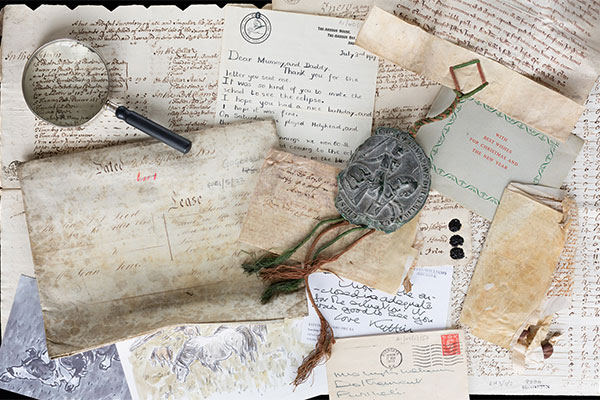The Diary and the War
Thomas despised jingoism and imperialism, but following the outbreak of the First World War he felt a duty to defend his motherland against the threat, which he perceived, to its communities and their way of life. He joined the army as a volunteer in 1915, and spent a period with the Artists’ Rifles, before being commissioned second lieutenant with the Royal Garrison Artillery in November 1916. Thomas began this diary in January 1917, while he was with his regiment in Lydd, Kent. By the end of the month they had crossed to France:
"Arrived Havre 4 a.m. Light of stars and windows of tall pale houses and electric arcs on quay. March through bales of cotton in sun to camp. The snow first emptying its castor of finest white. Tents.
The diary contains pithy, sometimes humorous, observations on military life, together with arresting descriptions of the natural world following its course amidst the fighting. Thomas also evidently saw beauty in warfare:
"Enemy plane like pale moth beautiful among shrapnel bursts.""
He was killed, within three months of arriving at the front, on the first day of the Battle of Arras, 9 April 1917. It had been generally believed that his death was due to a stray German shell passing so close to him that the rush of air compressed his lungs and stopped his heart. The strange arc of creases on the diary’s covers and pages was attributed to the shell’s shock wave. However Jean Moorcroft Wilson, in her biography Edward Thomas: From Adlestrop to Arras (2015), concludes that Thomas actually died from a direct hit by a 77 mm. shell and that the circumstances later became conflated with an incident the previous day when Thomas had survived a near miss from another shell. The last diary entry was written on the evening before his death. In the back of the volume (f. 29) can be found the only surviving draft of his last poem, ‘The Sorrow of True Love’. When seeking material for new poems, Thomas had often drawn on passages in his diaries and letters, and he would doubtless have done so with the contents of this diary had he lived.
During his final two years Thomas had composed a formidable body of over 140 poems. This late flowering of creativity has placed him among the most influential English language poets of the 20th century. And it gives greater poignancy to the blank final pages of his diary.




